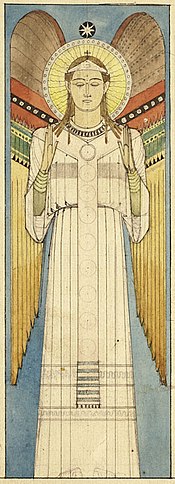This article has multiple issues. Please help improve it or discuss these issues on the talk page. (Learn how and when to remove these messages)
|
In philosophy, religion, and psychology, "good and evil" is a common dichotomy. In religions with Manichaean and Abrahamic influence, evil is perceived as the dualistic antagonistic opposite of good, in which good should prevail and evil should be defeated.[1]
Evil is often used to denote profound immorality.[2] Evil has also been described as a supernatural force.[2] Definitions of evil vary, as does the analysis of its motives.[3] However, elements that are commonly associated with evil involve unbalanced behavior involving expediency, selfishness, ignorance, or negligence.[4]
The principal study of good and evil (or morality) is ethics, of which there are three major branches: normative ethics concerning how we ought to behave, applied ethics concerning particular moral issues, and metaethics concerning the nature of morality itself.[5]
- ^ Ingram, Paul O.; Streng, Frederick John (1986). Buddhist-Christian Dialogue: Mutual Renewal and Transformation. Honolulu, Hawaii: University of Hawaii Press. pp. 148–149.
- ^ a b "Evil". Oxford, England: Oxford University Press. 2012. Archived from the original on 2012-08-22.
- ^ Staub, Ervin (2011). Overcoming Evil: Genocide, Violent Conflict, and Terrorism. New York City: Oxford University Press. p. 32. ISBN 978-0195382044.
- ^ Matthews, Caitlin; Matthews, John (2004). Walkers Between the Worlds: The Western Mysteries from Shaman to Magus. Rochester, Vermont: Inner Traditions / Bear & Co. p. 173. ISBN 978-0892810918.
- ^ Internet Encyclopedia of Philosophy "Ethics"

